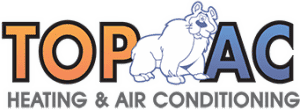In today’s world, energy efficiency is not just a buzzword; it’s a necessity. With rising energy costs and increasing environmental concerns, optimising the energy consumption of our heating, ventilation, and air conditioning (HVAC) systems is crucial.
Inefficient HVAC systems can account for a significant portion of a building’s energy usage, leading to higher utility bills and a larger carbon footprint. By implementing energy-efficient practices, you can save money, reduce environmental impact, and enhance indoor comfort.
Conduct Regular Maintenance
1. Clean or Replace Air Filters Regularly
Clogged air filters can significantly reduce the efficiency of your HVAC system. When air filters become dirty, the system has to work harder to circulate air, consuming more energy. Regularly cleaning or replacing the air filters can improve airflow, reduce strain on the system, and enhance energy efficiency.
2. Schedule Professional HVAC System Tune-ups
Regular professional maintenance is essential for optimal HVAC performance. During a tune-up, a certified HVAC technician will inspect, clean, and adjust various components of your system, ensuring it operates at peak efficiency. This preventive maintenance can identify and address potential issues before they escalate, saving you money on costly repairs and energy consumption.
Upgrade to Energy-Efficient HVAC Equipment
1. Consider High-Efficiency Models
Investing in high-efficiency models can significantly reduce energy consumption and operating costs when replacing your HVAC system. Look for ENERGY STAR® certified equipment, which meets strict energy efficiency guidelines set by the U.S. Environmental Protection Agency (EPA). These models use advanced technologies and features to optimize energy usage while maintaining optimal comfort levels.
2. Install a Programmable Thermostat
A programmable thermostat is a simple yet effective way to improve energy efficiency. By allowing you to set temperature schedules based on your daily routine, a programmable thermostat can automatically adjust the temperature when you’re away or asleep, reducing energy consumption and costs.
Seal and Insulate Your Home
1. Seal Air Leaks
Air leaks around windows, doors, and other openings can significantly impact the efficiency of your HVAC system. When conditioned air escapes or outside air infiltrates, your system has to work harder to maintain the desired temperature, wasting energy. Sealing air leaks with caulk, weatherstripping, or other appropriate materials can help prevent air leakage and improve energy efficiency.
2. Insulate Properly
Proper insulation is crucial for maintaining a comfortable indoor environment while minimizing energy consumption. Insulation acts as a barrier, preventing heat transfer between the interior and exterior of your home. By ensuring that your walls, attic, and crawl spaces are adequately insulated, you can reduce the workload on your HVAC system, leading to energy savings.
Optimize HVAC System Sizing and Design

1. Choose the Right System Size
An improperly sized HVAC system can lead to inefficiencies and discomfort. An oversized system will cycle on and off frequently, wasting energy and failing to maintain consistent temperatures. Conversely, an undersized system will struggle to meet your heating or cooling demands, leading to increased energy consumption and discomfort. Work with a professional HVAC contractor to ensure your system is appropriately sized for your home or building.
2. Consider Zoning Systems
Zoning systems allow you to divide your home or building into separate temperature zones, each with its thermostat and dampers. This approach enables you to heat or cool only the occupied areas, reducing energy consumption in unoccupied spaces. Zoning systems can be particularly beneficial for larger homes or buildings with varying occupancy patterns.
Implement Passive Cooling and Heating Strategies
1. Utilize Shading and Landscaping
Strategic landscaping and shading can reduce the heat your home absorbs, reducing the cooling load on your HVAC system. Plant trees or install awnings to shade windows and walls that receive direct sunlight, especially on your home’s east and west sides. Also, lighter-coloured exterior surfaces can reflect more sunlight, reducing heat absorption.
2. Incorporate Natural Ventilation
When weather conditions permit, use natural ventilation by opening windows and doors to allow cool air to circulate through your home. This can reduce the need for air conditioning and lower energy consumption. However, be mindful of humidity levels and outdoor air quality to ensure a comfortable and healthy indoor environment.
Educate Occupants on Energy-Efficient Practices
1. Encourage Energy-Conscious Behavior
While implementing energy-efficient technologies is crucial, occupant behavior also plays a significant role in energy consumption. Educate building occupants on simple practices such as turning off lights and electronics when not in use, adjusting thermostat settings appropriately, and promptly reporting any issues or concerns with the HVAC system.
2. Promote Sustainable Practices
Encourage occupants to embrace sustainable practices beyond energy efficiency. This could include reducing water consumption, properly disposing of hazardous materials, and implementing recycling and composting programs. A holistic approach to sustainability can reduce your overall environmental impact and potentially lead to additional cost savings.
At TOP AC Inc, we understand the importance of energy-efficient HVAC systems. Our team of certified professionals is dedicated to helping you optimize your system’s performance, reduce energy consumption, and enjoy a comfortable indoor environment. Contact us today to schedule a consultation and take the first step towards improved energy efficiency and cost savings.

